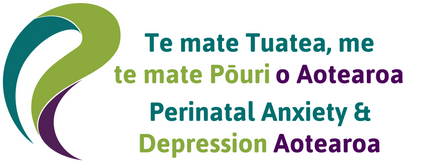The Fourth Trimester
The Fourth Trimester
The first few months of your baby’s life can feel very intense. Many babies need and want to be held a lot, some all the time, in these months. One explanation for this is the theory of the fourth trimester. According to this theory, babies are not developmentally ready to be born until they are a few months old.
This means:
- They will be needing to feed many times a day and night because of their very small tummy.
- They will be want to held most of the day, to feel secure and safe, as if they were still in the womb.
- They will have very immature guts, which means lots of wind, spills or noisy grunting in the wee hours of the nights.
These are all normal behaviours for a baby in the first months of life. And the only way they can communicate their needs is by crying. So you might also get lots of crying, while you are trying to figure out; ‘What do they need?’ – Feed? Nappy change? Too warm? Too cold? Tummy hurting? Hungry again? (Yes, again – remember the small tummy).

Things you can do to help yourself in the fourth trimester
It will take them a few weeks and sometimes months to know the difference between day and night. It will take them time to ‘sleep through the night’ (which is 4-5 hours, not more, for most babies). Frequent wakings at night are normal in this period, as well as through the first year of life.
This time requires a lot of patience, it can be very challenging, to have to take care of your baby’s needs 24/7, no holidays or lunch breaks… It will get better after 3 or 4 months, when they are fully developed and can start to be more independent and give you a bit more free time.
- For now, getting a really good front pack is very helpful.
- Take your self-care seriously – try to do something alone once a day for at least 20 minutes.
- Try to get out of the house every day.
- Find other parents who are in the same situation, it is so helpful to see you are not alone in this.
- Try to have good foods that are good for you and to exercise a bit every day.
- Prioritise sleep, try take short naps as well!
- Be careful of toxic and confusing advice on social media.
- Talk to your partner or whānau about what do you need from them, never say no to help and never hesitate to ask for help; be quite specific in what you need from them.

Parental Well-Being Podcast with Shirena Vasan
This podcast aims to support parents to gain insights into parenting challenges and stresses and provide some tools, techniques, and resources to manage these. Supporting parents to take care of ourselves, while we care for our families.
Episode 15. – The process of becoming a mother – Matrescence
Description: Matrescence is defined as the process of becoming a mother – those physical, psychological and emotional changes we go through after the birth of a child. The concept relates to the expected changes such as how our bodies change during pregnancy and to some extent, that life will change.
Many mothers struggle with identity after having children. We may feel forgotten by friends, isolated, wondering if our careers are over, or if it is ok to ‘just be a mum.’ Some mothers miss their old life and wonder were they fit in. In this episode we discuss matrescence, the common feelings new mothers have, strategies to help with this motherhood journey, and also touch on some differences between matrescence and postnatal depression.
This podcast features PADA Educator Liora Noy.
Free Resource for new mums – Matrescence NZ
Download this free resource from Matrescence NZ, designed to support families to prepare holistically for the postpartum period – like a birth plan but focused on parental well-being postpartum!
Completely free to download or available at a small print/postage. Matrescence NZ are passionate about making this resource accessible to all expecting parents.
The plan was designed and had the involvement of a psychologist, teacher, midwife, postpartum doula, sleep consultant, mothers and mums to be. It has been designed to enhance the protective factors for maternal well-being, such as strengthening support networks, relationships and communication, as well as including topics, activities and information to help mothers prepare such as nutrition, sleep and mental health.
Remember your baby will grow very fast, get stronger, become more independent and things will get easier! Also remember that the more you get to know your baby’s cues and respond to these cues and needs, the easier and better it will be for yourself and the whole whānau.
Do you need help? You can Get Help Now, or go to our web pages to learn about postnatal depression, antenatal depression or depression in dads, or find a support service near you.


